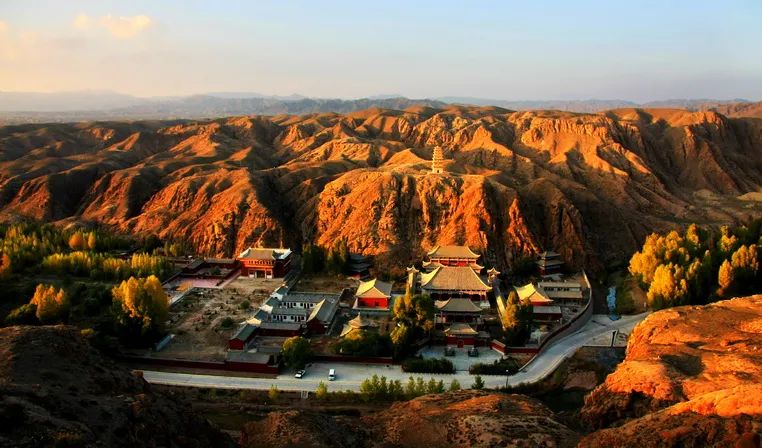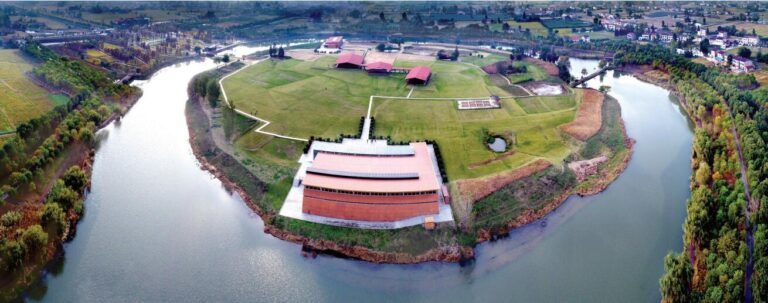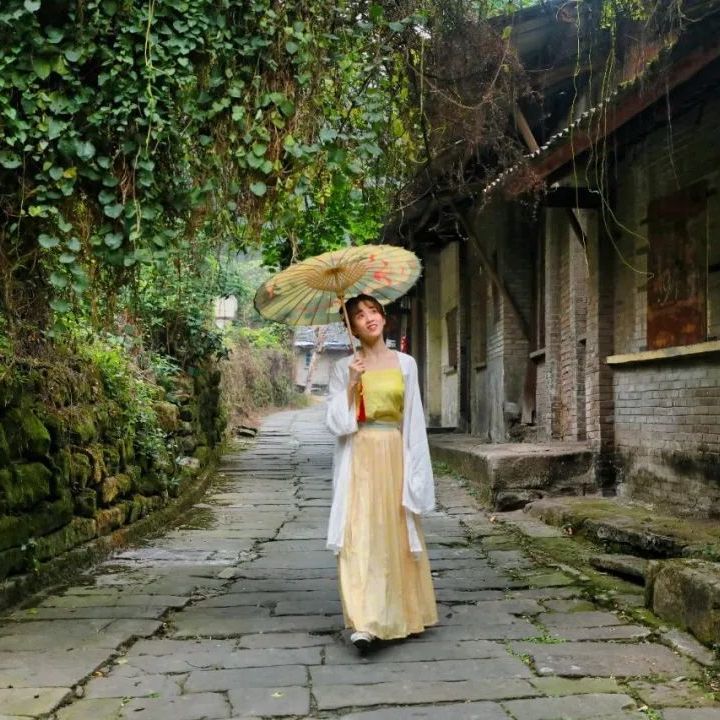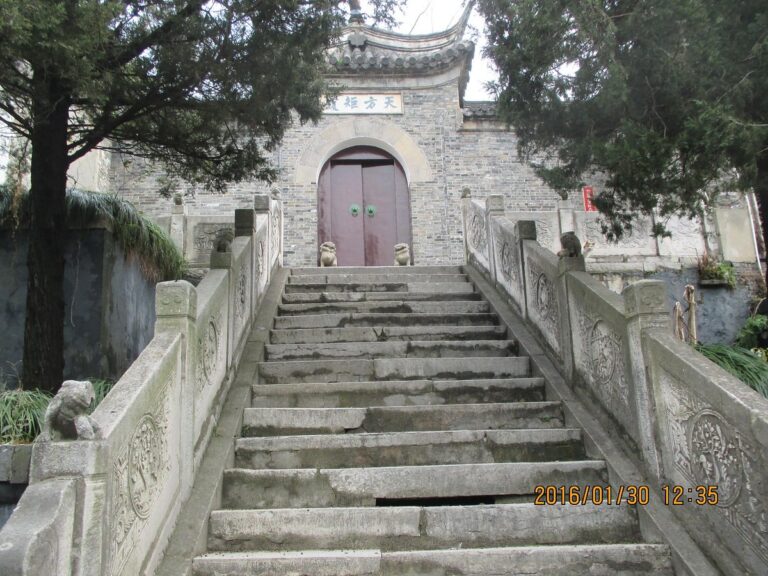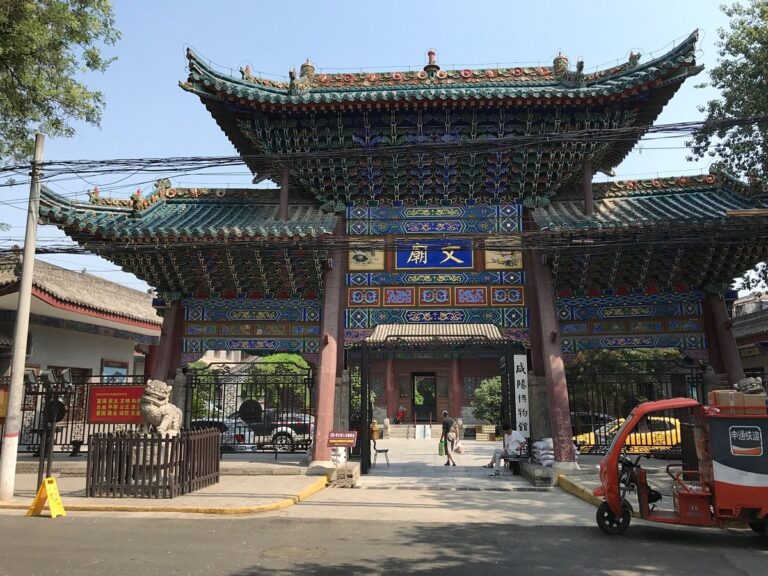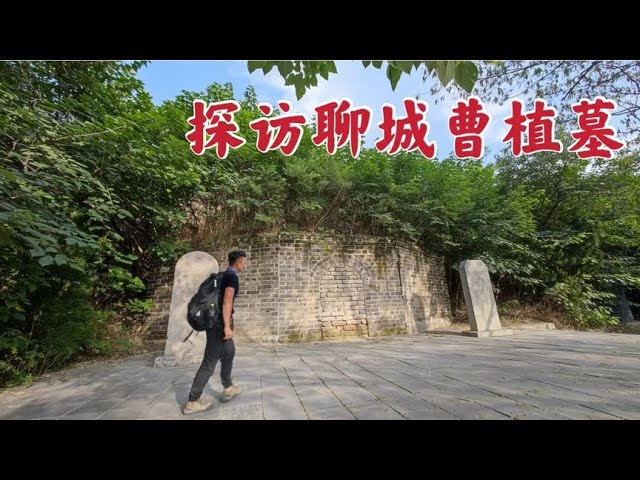Step Back in Time at Fuzhou Wenmiao: Explore Fuzhou’s Historic Temple
An Essential Guide to Visiting Fuzhou Fuzhou Wenmiao
In This Guide
- An Essential Guide to Visiting Fuzhou Fuzhou Wenmiao
- The Rich History of Fuzhou Fuzhou Wenmiao
- Main Highlights: What to See at Fuzhou Fuzhou Wenmiao
- Planning Your Visit: A Practical Guide
- Tickets, Hours, and Booking
- How to Get There
- Local Cuisine and Accommodation
- Frequently Asked Questions
- Final Thoughts on Your Trip
Nestled in the heart of Fuzhou, the Fuzhou Wenmiao, or Confucius Temple, stands as a remarkable tribute to Confucianism and a testament to the rich cultural heritage of the region. This magnificent site, dating back to the Tang Dynasty, serves not only as a place of worship but also as a historical archive, reflecting centuries of educational traditions and philosophical discourse.
Upon entering the temple grounds, visitors are greeted by an impressive array of ancient architecture, meticulously crafted stone sculptures, and intricately designed halls that evoke a sense of reverence and reflection. The main hall, known as Dacheng Hall, is particularly striking, featuring towering stone pillars and a grand statue of Confucius himself. Here, one can feel the weight of history and the enduring influence of Confucian teachings that have shaped Chinese society for generations.
The Fuzhou Wenmiao is more than just a historical monument; it is a vibrant cultural hub where traditional festivals, poetry recitals, and educational programs breathe life into the ancient teachings of Confucius. As you stroll through the serene courtyards and explore the various chambers housing ancient texts and artifacts, you will find yourself immersed in the philosophical and educational legacy that permeates every corner of this sacred space.
Visiting the Fuzhou Wenmiao offers a unique opportunity to connect with the past while appreciating the beauty and depth of Chinese culture. Whether you are a history enthusiast, a culture seeker, or simply in search of a tranquil escape from the bustling city, this magnificent temple promises an enriching experience that will linger in your memory long after you leave its hallowed grounds.
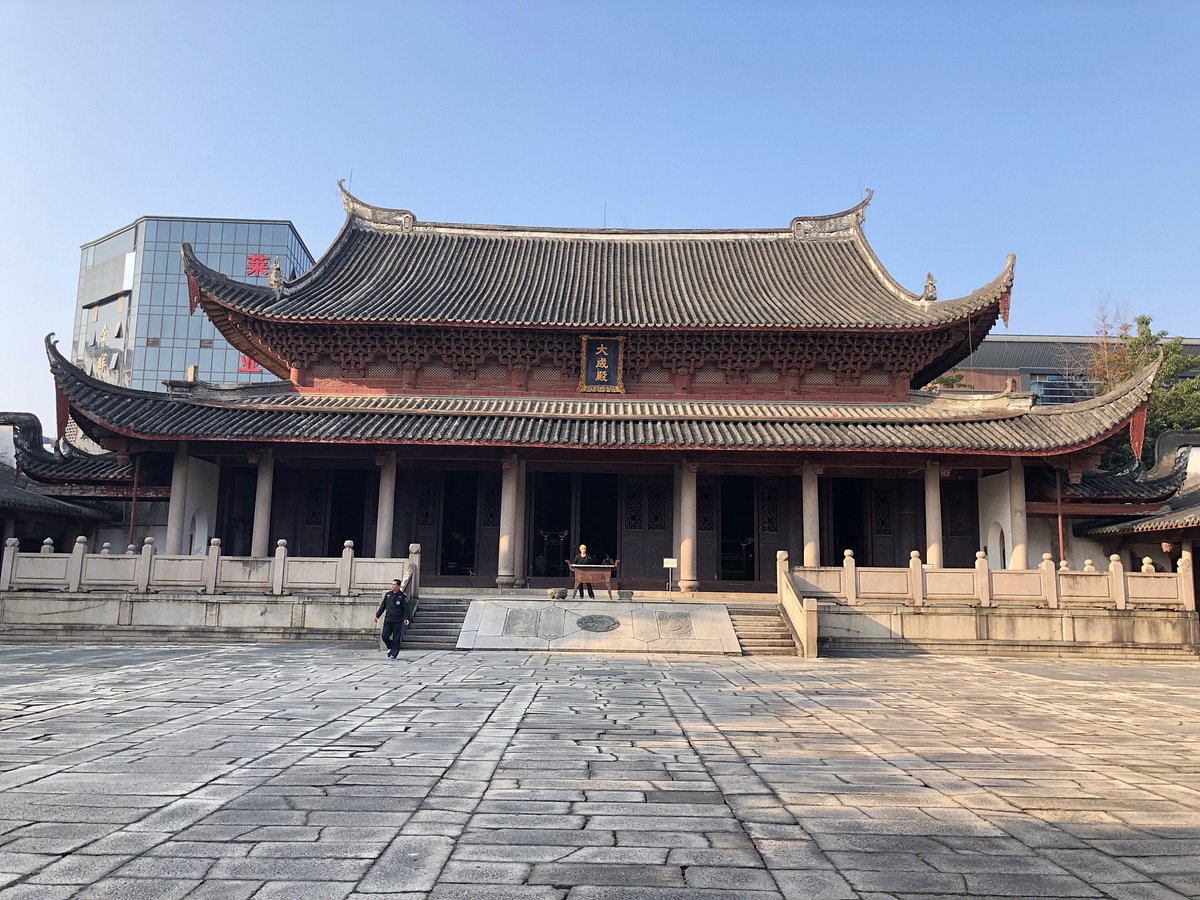
Fuzhou Fuzhou Wenmiao.
The Rich History of Fuzhou Fuzhou Wenmiao
Fuzhou Wenmiao, also known as the Confucius Temple, stands as a testament to the enduring legacy of Confucianism in Chinese culture. Located in the heart of Fuzhou, Fujian Province, this historical site has its roots in the Tang Dynasty, specifically during the seventh year of the Dali reign (around 772 AD), when it was originally established as an educational institution by Li Yi. Over the centuries, it evolved into a temple dedicated to Confucius, reflecting the profound respect for Confucian teachings and the importance of education in Chinese society.
During the Five Dynasties period, the temple saw significant developments, including the establishment of four gates for educational purposes under the leadership of Wang Shenzhi. By the Song Dynasty, it was formally recognized as a Confucian temple, known for its elaborate architectural designs and expansive grounds, which included numerous halls and pavilions dedicated to the study of Confucian texts and the veneration of Confucius.
The temple has endured several trials throughout its history. Major fires struck during the Song, Ming, and Qing Dynasties, particularly in the years of Emperor Xizong and Emperor Hongwu, leading to the gradual reduction of its size. The current structure was reconstructed between the first and fourth years of the Xianfeng reign (1851-1854) during the Qing Dynasty, showcasing the architectural grandeur of the time. The temple was built facing south, consisting of a series of significant buildings arranged along a central axis, including the iconic Dacheng Hall, which features a stunning nine-ridge roof and is supported by four massive stone pillars.
The temple is adorned with intricate stone carvings and significant inscriptions, including couplets written by emperors Kangxi and Qianlong, which highlight its historical and cultural significance. Over the years, it has served not only as a place of worship but also as a cultural center where various educational and artistic activities take place, such as poetry recitals and traditional festivals.
In the modern era, Fuzhou Wenmiao has become a protected cultural heritage site, recognized both at the municipal and provincial levels. It was officially listed as a national key cultural relic protection unit by the State Council in 2006. Today, it attracts visitors who wish to explore its serene environment, appreciate its historical architecture, and engage with the rich cultural heritage of Fuzhou. The temple remains a vital link to the past, embodying the scholarly spirit and reverence for education that Confucius espoused centuries ago.
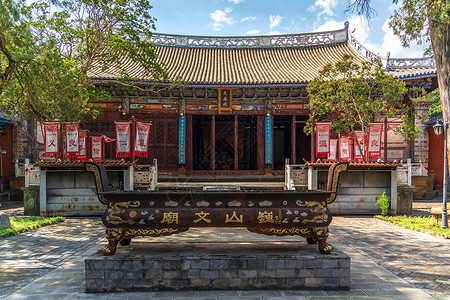
Fuzhou Fuzhou Wenmiao.
Main Highlights: What to See at Fuzhou Fuzhou Wenmiao
Located in the heart of Fuzhou, the Fuzhou Wenmiao (Fuzhou Confucius Temple) is a remarkable historical and cultural site that reflects the rich heritage of Confucianism in China. Here are the main highlights that make this temple a must-visit destination:
Architectural Marvel
The temple complex, established during the Tang Dynasty, showcases exquisite traditional Chinese architecture. The main hall, known as the Dacheng Hall, features a stunning nine-ridge roof and towering stone columns, creating an awe-inspiring ambiance. The intricate wooden carvings and stone sculptures throughout the temple depict various aspects of Confucian philosophy and history.
Historical Significance
Fuzhou Wenmiao is not just a temple; it serves as a testament to the educational and cultural values that Confucius championed. The site has undergone several restorations throughout its long history, particularly after devastating fires during the Song, Ming, and Qing dynasties. Today, it stands as one of the largest Confucian temples in Fujian Province and is recognized as a key national heritage site.
Cultural Experience
Visitors to the temple can immerse themselves in the profound cultural atmosphere. The temple often hosts events such as poetry readings and traditional ceremonies, allowing guests to engage with Chinese cultural practices. The serene environment is ideal for reflection or simply appreciating the philosophical teachings of Confucius.
Captivating Artworks
Inside the temple, you will find an array of remarkable artworks, including large calligraphic plaques inscribed by emperors such as Kangxi and Qianlong. These artifacts highlight the temple’s historical connections and showcase the artistic styles of different periods.
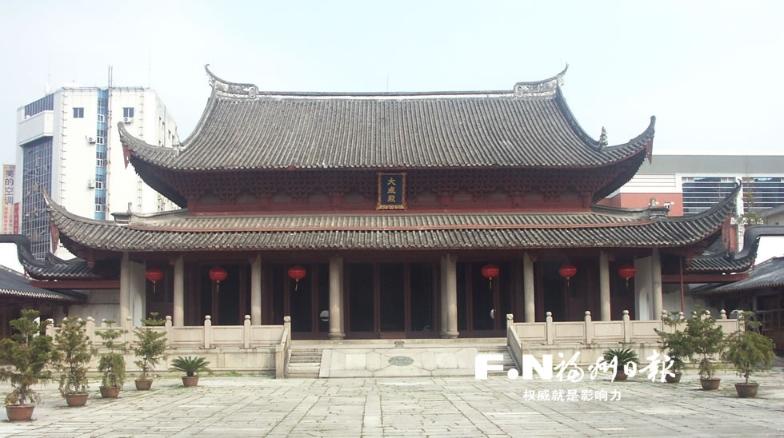
Fuzhou Fuzhou Wenmiao.
Family-Friendly Destination
Fuzhou Wenmiao is a family-friendly site where children can learn about ancient Chinese education systems and Confucian teachings. Many local families visit the temple during festivals to pay respect to Confucius, making it a lively spot filled with cultural activities.
Accessibility
Conveniently located on Shengmiao Road in the Gulou District, the temple is easily accessible for both locals and tourists. Best visited during the early morning or late afternoon, you can enjoy a quieter experience while exploring the tranquil grounds.
Visiting Fuzhou Wenmiao offers a unique glimpse into China’s philosophical heritage and architectural beauty, making it an essential stop for anyone looking to understand the cultural fabric of Fuzhou.
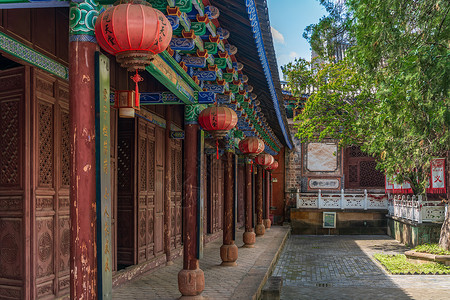
Fuzhou Fuzhou Wenmiao.
Planning Your Visit: A Practical Guide
Practical Guide to Fuzhou Wenmiao (Fuzhou Confucius Temple)
Fuzhou Wenmiao, also known as the Fuzhou Confucius Temple, is a significant cultural and historical site located in the heart of Fuzhou, Fujian Province. Established in the Tang Dynasty (618-907 AD) and later expanded during the Song and Ming Dynasties, this temple stands as a testament to Confucian values and Chinese educational traditions. Here’s what you need to know to make the most of your visit.
Location and Access
The temple is situated at 10 Shengmiao Road, Gulou District, Fuzhou. It is easily accessible by public transportation, with various bus lines operating in the vicinity. If you’re using a taxi or rideshare service, simply input the address, and drivers will be familiar with this well-known landmark.
Opening Hours
Fuzhou Wenmiao is open to visitors daily from 8:30 AM to 5:00 PM. It’s advisable to arrive early in the day or later in the afternoon to avoid the peak crowds and to experience a quieter atmosphere.
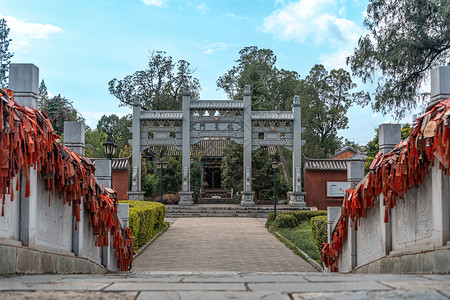
Fuzhou Fuzhou Wenmiao.
Admission
Entry to Fuzhou Wenmiao is free, making it an ideal destination for travelers on a budget. Although there are no fees, donations are appreciated to support the upkeep of this historical site.
Key Attractions
-
Dacheng Hall (大成殿): The main hall of the temple, dedicated to Confucius, is known for its impressive architecture and serene atmosphere. Inside, you’ll find a statue of Confucius surrounded by beautiful carvings and inscriptions, including couplets written by emperors of the Qing Dynasty.
-
Xiansheng Shrine (显圣祠): This area honors renowned scholars and is adorned with intricately carved stone sculptures that reflect Confucian ideals.
-
Scholar’s Pavilion (状元亭): A charming spot that commemorates the achievements of past scholars from the region. It’s a great place to take photographs and soak in the peaceful surroundings.
-
Respecting Classics Pavilion (尊经阁): This pavilion houses ancient texts and is a treasure trove for those interested in Confucian literature and philosophy.
Cultural Significance
Fuzhou Wenmiao serves as a cultural hub where various activities, such as poetry recitals, traditional performances, and cultural festivals, are held throughout the year. Engaging in these activities offers deeper insights into the local customs and traditions.
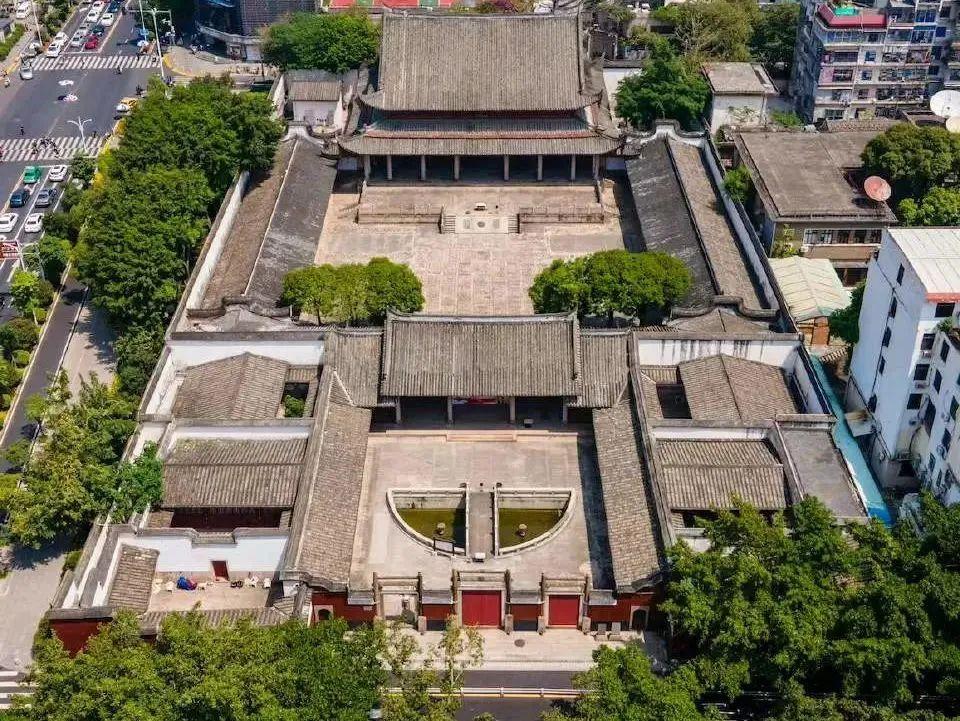
Fuzhou Fuzhou Wenmiao.
Visitor Etiquette
- Respect the Space: Be mindful of your surroundings. Avoid touching artifacts or climbing on structures.
- Photography: While taking photos is generally allowed, be considerate of other visitors and avoid using flash in quieter areas.
- Cleanliness: Keep the area tidy; dispose of trash in designated bins.
Nearby Attractions
After exploring the temple, consider visiting other nearby sites of interest:
- Sanfang Qixiang (三坊七巷): A historic district featuring ancient architecture and local shops, perfect for a leisurely stroll.
- Yushan Scenic Area (于山风景名胜区): Offers hiking trails and beautiful views of the city.
- Fuzhou Lin Zexu Memorial (林则徐纪念馆): A museum dedicated to the famous Chinese scholar and reformer, located not far from the temple.
Dining Options
For those looking to grab a meal after your visit, several restaurants and eateries are located within walking distance. You can savor traditional Fuzhou cuisine, which features delectable dishes like fish balls and rice noodles.
Conclusion
A visit to Fuzhou Wenmiao is not only an exploration of historical architecture but also a journey into the rich cultural heritage of China. Whether you are a history buff, a student of philosophy, or simply a curious traveler, this temple promises a fulfilling experience in the heart of Fuzhou. Enjoy your visit!
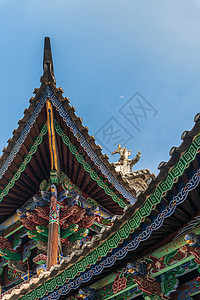
Fuzhou Fuzhou Wenmiao.
Tickets, Hours, and Booking
Visiting the Fuzhou Wenmiao (Fuzhou Confucius Temple) is a culturally enriching experience, and the good news is that entry to this historical site is free of charge. This allows travelers to explore the temple’s stunning architecture and learn about Confucianism without any financial barrier.
The temple is open to visitors every day from 8:30 AM to 5:00 PM. However, it’s recommended to arrive early in the morning or later in the afternoon to enjoy a quieter atmosphere and fully appreciate the serene surroundings and intricate details of the structures.
While there are no tickets required for entry, it is advisable to respect the temple’s cultural significance by refraining from touching any artifacts, smoking, or littering within the premises. This ensures that the temple remains a peaceful place for all visitors and preserves its historical integrity for future generations.
For those interested in guided tours or cultural activities, local tour operators may offer packages that include transportation, guided visits, and additional attractions in Fuzhou, providing a more comprehensive experience of the city’s rich heritage.
How to Get There
Getting to Fuzhou Wenmiao (Fuzhou Confucius Temple) is straightforward, thanks to the city’s well-developed transportation system. Here’s a comprehensive guide on how to navigate to this historical site, regardless of where you’re starting from in Fuzhou.
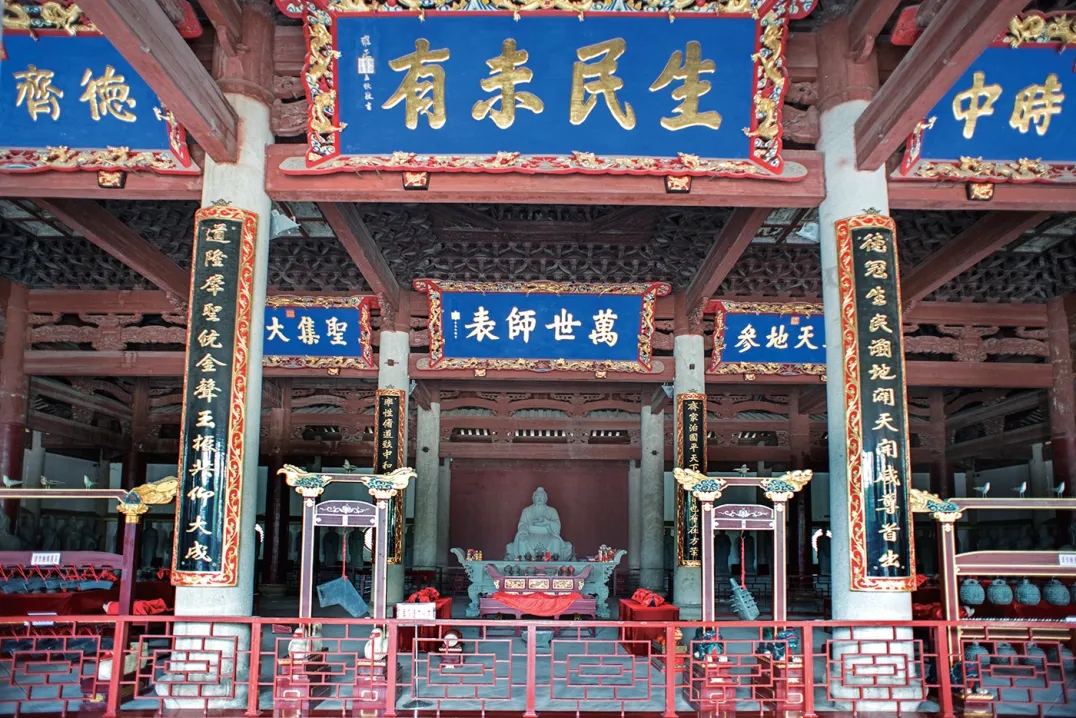
Fuzhou Fuzhou Wenmiao.
Public Transportation
Metro:
Fuzhou’s metro system is an efficient way to reach Wenmiao. The nearest station is Xichan Temple Station on Line 1. From there, it’s approximately a 15-minute walk to the temple. Follow the signs leading to the temple area or use a navigation app for the best walking route.
Buses:
Several bus lines stop near Fuzhou Wenmiao. You can take buses numbered 12, 23, 29, 96, or 132. Get off at the “Wen Miao” stop, which is conveniently located close to the temple entrance. Buses are a cost-effective option, running frequently throughout the day.
Taxis and Ride-Sharing
If you prefer a more direct route, taxis are readily available throughout the city. Simply flag one down or use a ride-hailing app like Didi Chuxing. The fare from central Fuzhou to Wenmiao typically ranges from ¥15 to ¥30 ($2-$5) depending on traffic.
Cycling
For those who enjoy cycling, Fuzhou has introduced bike-sharing programs. You can rent a bike from various stations around the city. The ride to Wenmiao is pleasant, allowing you to explore the scenic streets and parks along the way. Ensure you have a navigation app handy to guide you to your destination.
Walking
If you’re staying nearby, walking to Fuzhou Wenmiao is also a delightful option. The surrounding area is rich in cultural and historical landmarks, making it a pleasant stroll. You can combine your visit with stops at other attractions such as the Lin Zexu Memorial and Three Lanes and Seven Alleys, which are within walking distance.
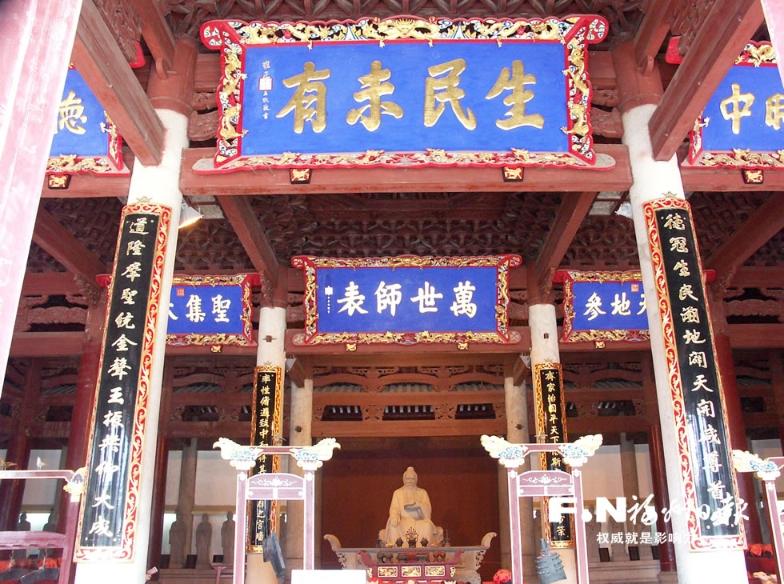
Fuzhou Fuzhou Wenmiao.
Accessibility
Fuzhou Wenmiao is accessible for visitors with mobility challenges. There are ramps available at the entrance, and the temple grounds are relatively flat, allowing for easy navigation. If you have concerns, it’s advisable to contact the temple in advance to ensure all your needs are met.
Conclusion
Whether you opt for public transport, a taxi, or a leisurely walk, getting to Fuzhou Wenmiao is convenient and offers a glimpse into the city’s vibrant culture. Make sure to plan your visit for a time when you can enjoy the serene atmosphere of this historical site, ideally during the early morning or late afternoon to avoid crowds.
Local Cuisine and Accommodation
When visiting Fuzhou Wenmiao, also known as the Confucius Temple, you’ll discover not just a rich tapestry of history and culture but also an array of delightful culinary options and comfortable accommodations nearby. Here’s a guide to help you make the most of your visit.
Dining Options
Fuzhou boasts a vibrant food scene, and you’ll find many eateries within walking distance from the Wenmiao. Here are some recommendations:
-
An Tai Lou Restaurant (安泰楼酒家): Located just a short stroll from the temple, this restaurant specializes in traditional Chinese cuisine, offering a variety of dishes that highlight the freshness of local ingredients. Expect to find dishes like Fuzhou fish balls and other regional specialties.
-
Qing Qing Seafood Restaurant (平潭清清海鲜坊): If you’re a seafood lover, this spot is perfect for you. Known for its fresh catches and authentic flavors, it’s a great place to enjoy a meal while soaking in the local atmosphere.
-
Pork Noodle Corner (猪吉面缘): This cozy eatery is perfect for a quick bite. Their pork noodles are a local favorite, and the inviting ambiance makes it a great stop for a casual meal.
-
Guo’s Private Kitchen (亚苑私厨): For a more upscale dining experience, Guo’s offers exquisite dishes in a refined setting. The chef’s special menu showcases the best of Fujian cuisine, making it a wonderful choice for food enthusiasts.
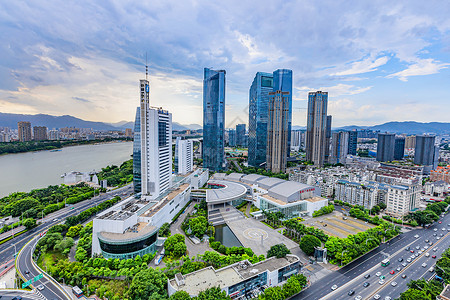
Fuzhou Fuzhou Wenmiao.
Accommodation
Finding a comfortable place to stay near Fuzhou Wenmiao enhances your experience, allowing you to easily explore the area. Here are some top-rated options:
-
Fuzhou Juchun Garden Hotel (福州聚春园大酒店): A highly rated hotel that combines comfort and convenience, it is located within a short distance from the Wenmiao. Guests appreciate the spacious rooms, excellent service, and onsite dining options.
-
Yantai Mountain Inn (棲隱煙山民宿): For a more homely feel, this inn is well-reviewed for its cozy atmosphere and friendly hosts. It’s a great base for exploring local attractions, including the temple.
-
Sanfang Qixiang Anmin Hotel (福州三坊七巷安民·半舍酒店): Situated in the heart of the historic Sanfang Qixiang, this hotel offers modern amenities with a touch of traditional charm. Its proximity to both the Wenmiao and other cultural sites makes it an ideal choice for travelers.
-
Wenhua Shuyuan Hotel (文川一舍民宿): This charming guesthouse provides a unique experience with traditional decor and personalized service, making it a popular choice for those wishing to immerse themselves in local culture.
Final Thoughts
Whether you’re savoring local delicacies or resting in a comfortable hotel, both food and accommodation near Fuzhou Wenmiao enhance your cultural exploration. Enjoy your visit and indulge in the flavors and hospitality that Fuzhou has to offer!
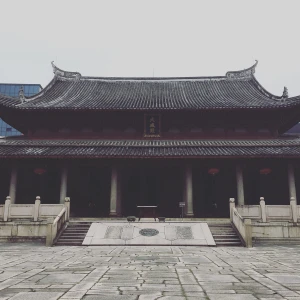
Fuzhou Fuzhou Wenmiao.
Frequently Asked Questions
-
What is the Fuzhou Wenmiao?
Fuzhou Wenmiao, also known as the Confucius Temple, is a significant cultural and historical site located in Fuzhou, Fujian Province, China. Established during the Tang Dynasty, it serves as a shrine to Confucius and showcases ancient Chinese architecture, art, and education traditions. -
Where is Fuzhou Wenmiao located?
The temple is situated at No. 10 Shengmiao Road, Gulou District, Fuzhou, Fujian Province. It is easily accessible and is one of the central attractions in the city. -
What are the opening hours of Fuzhou Wenmiao?
Fuzhou Wenmiao is open to visitors from 8:30 AM to 5:00 PM. It’s recommended to visit during the morning or late afternoon to enjoy a quieter experience. -
Is there an entrance fee to visit the temple?
No, there is no entrance fee to enter Fuzhou Wenmiao, making it an accessible cultural experience for all visitors. -
What are the main attractions within Fuzhou Wenmiao?
Key highlights include the Dacheng Hall, where the statue of Confucius is housed, the Xiansheng Shrine, and various impressive stone carvings and inscriptions from historical figures, including emperors. The temple complex also features beautiful architecture and serene courtyards. -
Are there any guided tours available?
While there are no formal guided tours specifically for Fuzhou Wenmiao, visitors can find local guides or join group tours that include the temple as part of a larger itinerary exploring Fuzhou’s historical sites. -
What cultural activities can I experience at Fuzhou Wenmiao?
Throughout the year, Fuzhou Wenmiao hosts various cultural events such as temple fairs, poetry recitations, and traditional performances, allowing visitors to immerse themselves in the local cultural heritage. -
What should I keep in mind while visiting?
Visitors are encouraged to respect the sacred nature of the temple. Please refrain from touching artifacts or disrupting the quiet atmosphere. Additionally, smoking and littering are prohibited to preserve the temple’s environment.
Final Thoughts on Your Trip
Visiting the Fuzhou Wenmiao, or Confucius Temple, is more than just an excursion; it’s a journey into the heart of Chinese culture and history. This ancient site, with its magnificent architecture and serene atmosphere, encapsulates the essence of Confucian values that have shaped Chinese society for centuries.
As you wander through the halls adorned with intricate carvings and inscriptions from emperors past, you can almost hear the whispers of scholars and students who once roamed its grounds, seeking knowledge and enlightenment. The temple serves as a powerful reminder of the importance of education and moral integrity, ideals that resonate deeply in today’s fast-paced world.
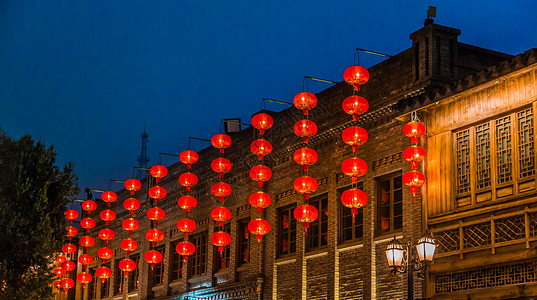
Fuzhou Fuzhou Wenmiao.
Whether you are a history enthusiast, a lover of architecture, or someone simply seeking tranquility away from urban life, the Fuzhou Wenmiao offers a unique blend of inspiration and reflection. Don’t miss the chance to immerse yourself in this cultural treasure, where the past meets the present, and the spirit of learning is cherished. Your visit will not only enrich your understanding of Fuzhou but also leave you with a profound appreciation for the enduring legacy of Confucianism in Chinese culture.
